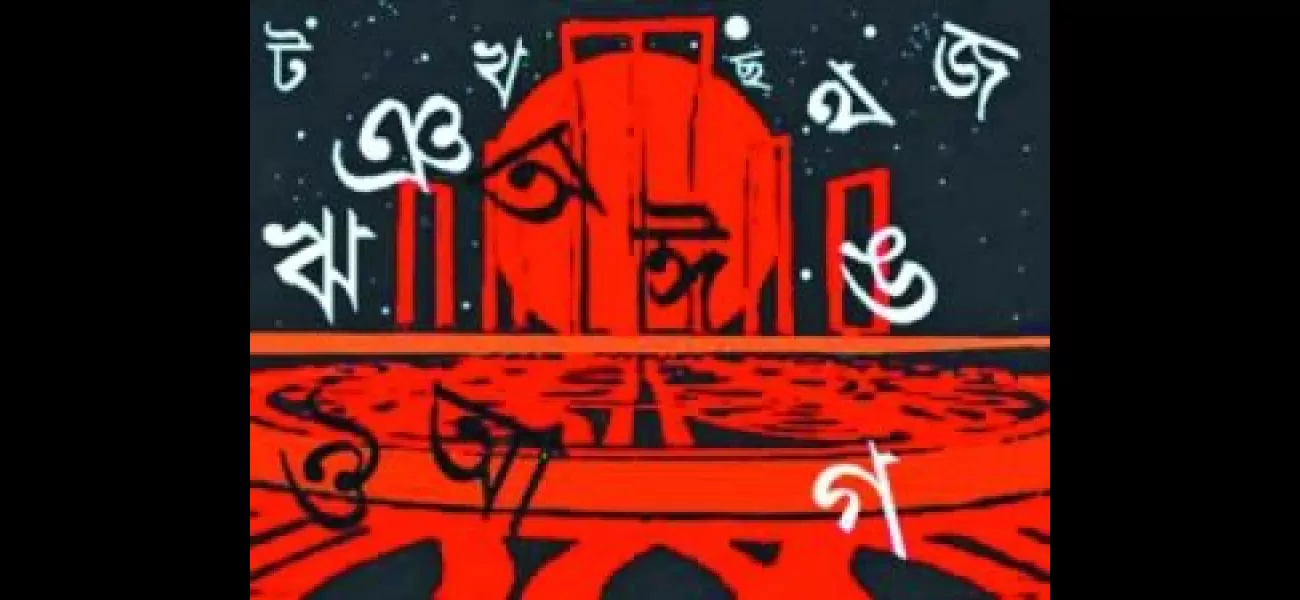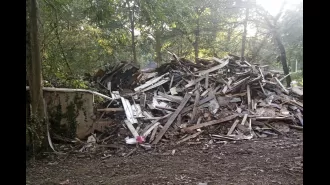Candidates in Odisha's Nabarangpur LS seat vying for the support of Bengali settlers.
Candidates in the Nabarangpur Lok Sabha seat in Odisha are competing for the votes of Bengali migrants, who could have a significant impact on the election results. Many of these migrants are from East Pakistan (now Bangladesh) and are from the scheduled caste.
May 12th 2024.

In the district of Koraput, the three major political parties, Biju Janata Dal, BJP, and Congress, are all competing for the support of the Bengali migrant settlers. This community, largely consisting of scheduled caste individuals, migrated to India from East Pakistan in the 1960s and 1970s. They currently reside in 214 villages in Malkangiri district and 64 villages in Nabarangpur district, after acquiring Indian citizenship in the early 1970s. With the elections for the Nabarangpur constituency scheduled for May 13, the votes of the Bengali community, which makes up around 1.5 lakh voters, hold significant weight in determining the outcome of the elections. As a result, the political parties are making efforts to gain their support.
The Nabarangpur parliamentary constituency covers four assembly segments in Nabarangpur district, two in Malkangiri district, and one in Koraput district. The Bengali community has a strong presence in all these areas and their votes can greatly impact the electoral dynamics. Therefore, the political parties are vying for their allegiance. BJD candidate Pradeep Majhi stated that the state government has implemented various development initiatives for the Bengali settlers in the past five years. He highlighted the provision of irrigation facilities and the strengthening of infrastructure in villages with a high concentration of Bengali residents. He also mentioned that in the previous election, the Bengali voters had chosen BJD and he is confident that they will continue to support the party this time as well.
On the other hand, BJP candidate Balabhadra Majhi expressed his belief that the Bengali settlers want to see Narendra Modi as the Prime Minister and thus, will vote for BJP for their overall development. Congress candidate Bhujabal Majhi also did not lag behind in appealing to the Bengali community. He stated that the Bengali voters are intelligent and will make informed decisions while casting their votes.
In an attempt to woo the Bengali settlers, Assam Chief Minister Himant Biswa Sarma campaigned for the BJP candidate in Malkangiri district on May 9. He promised to provide Bengali language teachers in schools and to rename their villages. Sarma even delivered his speech mostly in Bengali, urging the community to vote for the lotus symbol. According to political analyst Ram Patnaik, the support of the Bengali voters is crucial for any tribal candidate to win the election. He also noted that in the past, the BJP had the backing of the Bengali settlers, but now the ruling BJD has made inroads into their villages, potentially affecting their previous loyalties.
Ashok Haldar, the president of the Matua community of Bengali settlers, highlighted this shift in allegiance to BJD. He praised the proactive stance of the party in addressing community concerns since 2022. This change in support was evident in the 2022 rural polls, where the BJD won 12 out of 15 Zilla Parishad seats, a significant increase from their one seat in the previous election in 2017. Haldar's view is shared by many Bengali settlers who have been let down by previous political neglect. Despite being selective in their choice of candidate, the Matua community, with around 30,000 voters, leans towards the BJD.
However, there are still unresolved grievances within the Bengali community. Sapan Kirtania, the patron of Malkangiri Bengali Samaj, listed some of these demands, including the recognition of revenue villages, the inclusion of Bengali language in school curricula, and the availability of land for families who have returned from Sundarbans in West Bengal. He stated that the Bengali voters will make their decision based on their own choices while keeping a close eye on the political landscape.
The Nabarangpur parliamentary constituency covers four assembly segments in Nabarangpur district, two in Malkangiri district, and one in Koraput district. The Bengali community has a strong presence in all these areas and their votes can greatly impact the electoral dynamics. Therefore, the political parties are vying for their allegiance. BJD candidate Pradeep Majhi stated that the state government has implemented various development initiatives for the Bengali settlers in the past five years. He highlighted the provision of irrigation facilities and the strengthening of infrastructure in villages with a high concentration of Bengali residents. He also mentioned that in the previous election, the Bengali voters had chosen BJD and he is confident that they will continue to support the party this time as well.
On the other hand, BJP candidate Balabhadra Majhi expressed his belief that the Bengali settlers want to see Narendra Modi as the Prime Minister and thus, will vote for BJP for their overall development. Congress candidate Bhujabal Majhi also did not lag behind in appealing to the Bengali community. He stated that the Bengali voters are intelligent and will make informed decisions while casting their votes.
In an attempt to woo the Bengali settlers, Assam Chief Minister Himant Biswa Sarma campaigned for the BJP candidate in Malkangiri district on May 9. He promised to provide Bengali language teachers in schools and to rename their villages. Sarma even delivered his speech mostly in Bengali, urging the community to vote for the lotus symbol. According to political analyst Ram Patnaik, the support of the Bengali voters is crucial for any tribal candidate to win the election. He also noted that in the past, the BJP had the backing of the Bengali settlers, but now the ruling BJD has made inroads into their villages, potentially affecting their previous loyalties.
Ashok Haldar, the president of the Matua community of Bengali settlers, highlighted this shift in allegiance to BJD. He praised the proactive stance of the party in addressing community concerns since 2022. This change in support was evident in the 2022 rural polls, where the BJD won 12 out of 15 Zilla Parishad seats, a significant increase from their one seat in the previous election in 2017. Haldar's view is shared by many Bengali settlers who have been let down by previous political neglect. Despite being selective in their choice of candidate, the Matua community, with around 30,000 voters, leans towards the BJD.
However, there are still unresolved grievances within the Bengali community. Sapan Kirtania, the patron of Malkangiri Bengali Samaj, listed some of these demands, including the recognition of revenue villages, the inclusion of Bengali language in school curricula, and the availability of land for families who have returned from Sundarbans in West Bengal. He stated that the Bengali voters will make their decision based on their own choices while keeping a close eye on the political landscape.
[This article has been trending online recently and has been generated with AI. Your feed is customized.]
[Generative AI is experimental.]
0
0
Submit Comment





